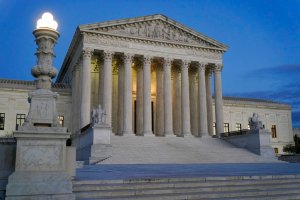By Mark Sherman,
The Associated Press
A jury convicted Dayonta McClinton of robbing a CVS pharmacy but acquitted him of murder. A judge gave McClinton an extra 13 years in prison for the killing anyway.
In courtrooms across America, defendants get additional prison time for crimes that juries found they didn’t commit.
The Supreme Court is being asked, again, to put an end to the practice. It’s possible that the newest member of the court and a former federal public defender, Justice Ketanji Brown Jackson, could hold a pivotal vote.
McClinton’s case and three others just like it are scheduled to be discussed when the justices next meet in private on Jan. 6, 2023.
Sentencing a defendant for what’s called “acquitted conduct” has gone on for years, based on a Supreme Court decision from the late 1990s. And the justices have turned down numerous appeals asking them to declare that the Constitution forbids it.
The closest the court came to taking up the issue was in 2014, when Justices Antonin Scalia, Clarence Thomas and Ruth Bader Ginsburg provided three of the four votes necessary to hear an appeal.
“This has gone on long enough,” Scalia wrote in dissent from the court’s decision to reject an appeal from defendants who received longer prison terms for conspiring to distribute cocaine after jurors acquitted them of conspiracy charges.
Help us Continue to tell OUR Story and join the AFRO family as a member –subscribers are now members! Join here!
The post The Supreme Court asked to bar punishment for acquitted conduct appeared first on AFRO American Newspapers .











